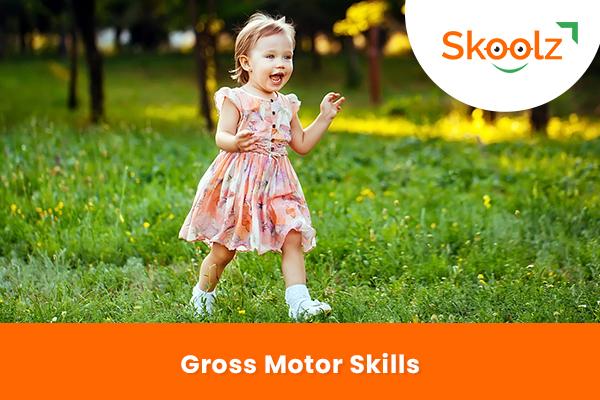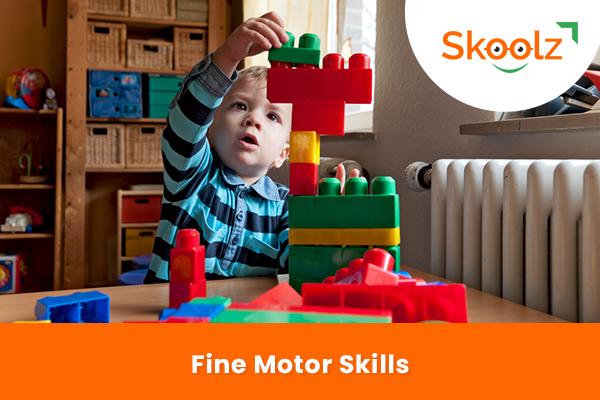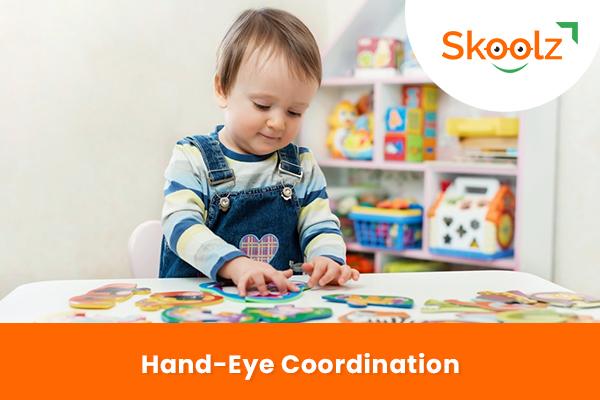
Nurturing Motor Skills: Understanding the Different Types and Their Impact on Child Development
Nurturing Motor Skills: Understanding the Different Types and Their Impact on Child Development
Motor skills development is crucial for toddlers as it helps them gain control over their movements and interact with the world around them. Here are some important motor skills that toddlers typically develop during their early years:
1. Gross Motor Skills:

- Walking: Toddlers usually begin walking independently between 9 to 15 months of age.
- Running: As their coordination improves, toddlers start running and gaining more speed and control.
- Jumping: Jumping with both feet off the ground becomes achievable for toddlers around 2 to 3 years old.
- Climbing: Toddlers show an increasing ability to climb stairs, playground structures, and furniture.
- Balancing: They develop the ability to balance on one foot momentarily and walk along narrow surfaces.
2. Fine Motor Skills:
- Grasping: Toddlers start developing a more refined pincer grasp, using their thumb and forefinger to pick up small objects.
- Scribbling: Holding a crayon or marker, toddlers begin making marks on paper and exploring basic drawing skills.
- Building: They can manipulate blocks and other objects to build simple towers and structures.
- Self-Feeding: Toddlers progress from using their hands to grasp food to using utensils like spoons and forks.
- Dressing: They attempt to dress and undress themselves, gradually mastering skills like buttoning, zipping, and snapping.
3. Hand-Eye Coordination:
- Throwing and Catching: Toddlers develop the ability to throw a ball and eventually learn to catch with both hands.
- Manipulating Objects: They improve their hand-eye coordination by manipulating objects like puzzles, stacking toys, and shape sorters.
- Fine Manipulation: Toddlers become more skilled at manipulating smaller objects like beads, buttons, and pegs.
4. Bilateral Coordination:
- Toddlers start using both hands for activities like clapping, banging toys, and manipulating objects.
Remember that each child develops at their own pace, so there might be variations in the acquisition of motor skills. Encouraging and providing opportunities for physical play, exploration, and age-appropriate toys can support the development of motor skills in toddlers.
Disclaimer: The information provided in the blogs is intended to offer general guidance on various aspects of toddler development. However, it is essential to note that every child is unique, and individual circumstances may vary. The content in our blogs should not be considered a substitute for professional medical advice. If you observe any critical symptoms or have specific concerns about your child's health, we strongly advise consulting with a qualified pediatrician. We do not assume any responsibility or liability for actions taken based on the information provided. Always seek the expertise of a medical professional for any specific concerns or medical attention your child may require. By accessing our toddler blogs, you acknowledge the importance of consulting with a pediatrician for any critical symptoms or concerns.

Bhawana Mohane
Digital Marketer

Nurturing Motor Skills: Understanding the Different Types and Their Impact on Child Development
Motor skills development is crucial for toddlers as it helps them gain control over their movements and interact with the world around them. Here are some important motor skills that toddlers typically develop during their early years:
1. Gross Motor Skills:

- Walking: Toddlers usually begin walking independently between 9 to 15 months of age.
- Running: As their coordination improves, toddlers start running and gaining more speed and control.
- Jumping: Jumping with both feet off the ground becomes achievable for toddlers around 2 to 3 years old.
- Climbing: Toddlers show an increasing ability to climb stairs, playground structures, and furniture.
- Balancing: They develop the ability to balance on one foot momentarily and walk along narrow surfaces.
2. Fine Motor Skills:
- Grasping: Toddlers start developing a more refined pincer grasp, using their thumb and forefinger to pick up small objects.
- Scribbling: Holding a crayon or marker, toddlers begin making marks on paper and exploring basic drawing skills.
- Building: They can manipulate blocks and other objects to build simple towers and structures.
- Self-Feeding: Toddlers progress from using their hands to grasp food to using utensils like spoons and forks.
- Dressing: They attempt to dress and undress themselves, gradually mastering skills like buttoning, zipping, and snapping.
3. Hand-Eye Coordination:
- Throwing and Catching: Toddlers develop the ability to throw a ball and eventually learn to catch with both hands.
- Manipulating Objects: They improve their hand-eye coordination by manipulating objects like puzzles, stacking toys, and shape sorters.
- Fine Manipulation: Toddlers become more skilled at manipulating smaller objects like beads, buttons, and pegs.
4. Bilateral Coordination:
- Toddlers start using both hands for activities like clapping, banging toys, and manipulating objects.
Remember that each child develops at their own pace, so there might be variations in the acquisition of motor skills. Encouraging and providing opportunities for physical play, exploration, and age-appropriate toys can support the development of motor skills in toddlers.
Disclaimer: The information provided in the blogs is intended to offer general guidance on various aspects of toddler development. However, it is essential to note that every child is unique, and individual circumstances may vary. The content in our blogs should not be considered a substitute for professional medical advice. If you observe any critical symptoms or have specific concerns about your child's health, we strongly advise consulting with a qualified pediatrician. We do not assume any responsibility or liability for actions taken based on the information provided. Always seek the expertise of a medical professional for any specific concerns or medical attention your child may require. By accessing our toddler blogs, you acknowledge the importance of consulting with a pediatrician for any critical symptoms or concerns.

Bhawana Mohane
Digital Marketer







